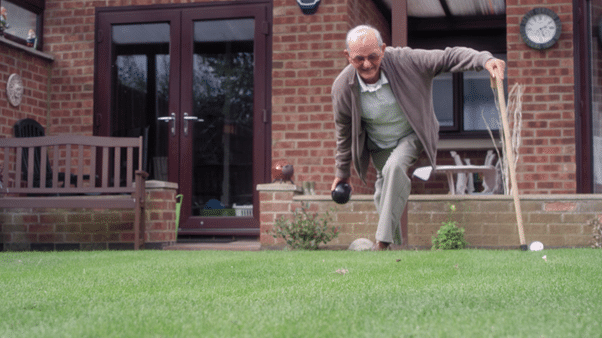
 " alt="">
" alt="">
Amputation Claims

Reviewed by
Peter Rigby - Managing Director of Medical Negligence | Last updated on: 23rd December, 2025
We've got your Amputation Claim covered
- No win No fee
- Not just lawyers - real specialists
- No obligation
- UK's highest-rated medical negligence solicitors
What is an Amputation Claim?
An amputation claim is a legal or insurance process pursued by individuals who have lost a limb or body part, such as toe amputation, leg amputation, or diabetic amputation, due to an accident, medical negligence, or workplace injury. Medical professionals have a duty of care; if that duty of care was breached and an amputation occurred as a direct result of that breach, this is medical negligence, and you can make an amputation medical negligence claim. You can contact us and find out if you can claim compensation for loss of limb.
Causes of Amputations Linked to Medical Negligence
Failure to Diagnose
Untreated or poorly managed infections, such as sepsis, gangrene and cellulitis, can spread rapidly and damage the tissue until it is at the point where amputation is necessary. Diabetic patients are at a higher risk if foot ulcers and infections aren’t treated properly. Such cases can give rise to diabetic amputation claims under the medical negligence claims process.
Surgical Errors
Mistakes during surgery, such as cutting off blood flow or damaging nerves or arteries, can cause irreparable harm to your body and result in an amputation. In extreme cases, wrong-site surgeries, in which a surgical procedure is performed on the wrong part of your body, can cause unintended amputations. These are common grounds in amputation negligence or medical malpractice claims.
Poor Post-Surgery Care
Medical professionals have a legal and ethical duty to provide proper post-surgery care to ensure a patient’s safe recovery and prevent complications. However, if this treatment is neglected, complications such as blood clots, infections, or poor circulation could result in limb loss, which may be grounds for limb loss compensation. After surgery, you are incredibly vulnerable to infections, and in some cases, this can lead to sepsis. Sepsis is a life-threatening condition that occurs when an infection injures its own tissues and organs. In the UK alone, there are 48,000 sepsis-related deaths per year, with over 11 million globally.
Medication Errors
Ensuring the correct medication and dosage is vital. A dosage that is too high can restrict blood flow, leading to tissue death, while a dosage that is too low may allow an infection to spread, causing further harm. In some cases, a patient may be prescribed the wrong medication altogether. This can result in negative interactions with existing conditions or other medications, potentially leading to poor circulation or clotting issues. Such complications can cause limb ischemia, a dangerous lack of blood flow, which may ultimately result in amputation.
Find out if you
have a claim
Take the 10-second claim test
Free Advice
03300 080 352
claim form
We're the highest-rated No Win No Fee medical negligence solicitors on Trustpilot
Types of Amputation Claims
Every Medical Negligence Claim process is different, depending on the details of the case; however, amputation claims are typically divided into upper and lower limb amputation types.
Upper Limb Amputation: An upper limb amputation refers to the surgical removal or loss of a part of the arm, which can include any portion from the fingers, hand, wrist, forearm, elbow, or upper arm. Upper limb amputations can vary in level and complexity, depending on the extent of the limb that needs to be removed.
Lower Limb Amputation: A lower limb amputation is the surgical removal or loss of a part of the leg, which can include the toes, foot, ankle, lower leg, knee, or thigh. It can be as far up as the hip or be a digit amputation where toes have been removed. The severity of the injury is relevant in determining the impact on your life and that of your loved ones.
Diabetes and Loss of Limbs
The NHS reports that people who have diabetes are 15 times more likely to undergo amputations than other people without the condition, and this is due to diabetic foot ulcers and foot infections. Foot ulcers are a common complication of diabetes, making proper foot care and regular examinations essential. Healthcare professionals have a duty to thoroughly assess and monitor foot health in diabetic patients. A failure to do so, particularly if it leads to amputation, may be considered amputation negligence. In some cases, patients may have also experienced a misdiagnosis or delayed diagnosis of diabetes.
If you believe you’ve been affected, our friendly and experienced team of experts are here to help you understand your legal options and guide you through the claims process with care and clarity.
Am I Eligible to Make an Amputation Claim?
If you’re unsure whether you have a claim or not, it is completely free to find out. Several key factors must be met before filing any medical negligence claim, these include:
- The amputation was caused by negligence or fault – The amputation must have resulted from someone else’s negligence, whether it’s medical negligence, a workplace accident, a defective product, or another party’s careless actions.
- Proof of Duty of Care and Breach – The responsible party owed you a duty of care and breached that duty by failing to act reasonably or according to accepted standards.
- Damages or Losses Suffered – You must have suffered actual damages, such as physical injury or financial loss, as a result of the amputation.
The best way to find out if you can make a claim is to contact our team of medical negligence specialists, who will be able to assess your case and help you with your amputation claim going forward.
How to Start an Amputation Claim?
To begin the process, simply fill out our Claim Checker form. This is a free, no-obligation assessment where you can share some details about your situation. Completing this form will give you a clearer idea of whether you have a valid claim and whether we are able to take your case forward.
Our team of experienced medical negligence experts is always ready to offer support and guidance. If you prefer to speak directly to someone about your claim, you can easily get in touch with us by phone or email. During an initial phone call, we’ll walk you through the entire medical negligence claims process, answer any questions you might have, and explain what you can expect at each stage.
We understand how stressful these situations can be, so we aim to provide you with reassurance and peace of mind throughout your claim. Whenever you’re ready, we’re here to help you take the first step and get your amputation claim underway.
What Can I Expect from the Amputation Claims Process?
If you have contacted our team and been told you do have an amputation claim, they will begin by helping you gather evidence. It can seem overwhelming, but it is important for us to cover all bases to ensure your justice. We will want to have access to your medical records, both hospital and GP, any medical reports to assess whether your treatment was below standard, and details of your losses.
Once your amputation compensation claim is accepted, we endeavour to get the ball rolling as soon as possible, and we will begin to notify the hospital or medical practitioner that a claim is being made.
Many cases settle via negotiation once the evidence is in. If no settlement is reached, court proceedings might follow. Our team of specialists will guide you through this when the time comes. If the claim succeeds, compensation can cover medical costs, lost wages, pain and suffering, costs of care and adaptations.
What Do I Need as Evidence to Start an Amputation Claim?
If your case is accepted by our team at Patient Claim Line, the usual next step is to request your medical records so that we can begin to build your case with dates and events. We will apply for your medical records on your behalf, and the cost is handled by us.
It is important to obtain an independent medical report that comments on what happened to you. This is a report written by an independent doctor or medical professional who assesses whether the treatment you received fell short of the expected standard and whether or not it is considered negligent. This is something we work with you to arrange and will ensure it is a time and place convenient for you.
In the case that the independent doctor feels as though your treatment was of a negligent nature, we will then gather evidence of your injuries and losses. If your injury, for example, has prohibited you from working, then we will consider the financial and emotional loss you have incurred from this.
How much compensation would I receive from an Amputation Claim?
The payout from an Amputation Claim can vary depending on the severity of the injury and the long-term impact. At Patient Claim Line, our Medical Negligence experts will work hard to get the amputation compensation you deserve.
Compensation for the loss of a limb can reach up to hundreds of thousands of pounds due to the physical and emotional trauma, as well as the financial losses you may incur. Amputation is divided into major amputation and minor amputation, and this may affect your final sum.
Why Choose Patient Claim Line for your Amputation Claim?
Not just lawyers — medical negligence experts
Patient Claim Line was established in 2014 and consists of a team of medical lawyers specialising in cancer negligence and general medical negligence claims.
At Patient Claim Line we have more than 100 solicitors with a combined experience of over 400 years and they will work on your behalf to achieve the best result possible for you.
It’s not enough to use a solicitor who sometimes covers medical negligence. You need someone who knows this area through and through. That is what the solicitors here at Patient Claim Line do. They deal exclusively in this area of law and are experts in the field.
Frequently asked questions about Amputation Claims
Our expert legal team answer your questions about making an Amputation Claim
You have three years to make an Amputation Claim from the date of the accident, or when you become aware of the incident that led to the amputation. This rule applies to anyone from their 18th birthday; however, if the amputation occurred when you were a child, you have until your 21st birthday to start a claim.
In most cases, you cannot receive compensation for an amputation claim until the matter is settled. If liability has been admitted by the other party, you may, however, be entitled to request an interim payment. This is a portion of your future compensation that is paid early, meant to help with urgent financial needs.
We operate on a “No Win, No Fee” basis, which means you won’t pay us anything if your case is unsuccessful.
If your claim is successful, your opponent will typically cover your legal fees. We will then deduct an agreed percentage from your compensation to cover our costs. This percentage is always discussed and confirmed with you in advance, before any paperwork is signed, so there are no surprises.
The amount of compensation awarded in an amputation claim can vary significantly, depending on the specific circumstances of each case.
While some claims can result in compensation reaching hundreds of thousands of pounds, the final amount depends on factors such as the severity of the amputation, its impact on your daily life, your ability to work, and any ongoing care or support you may need.
If you have had an avoidable amputation as a result of medical negligence, you may be offered a prosthetic limb from your healthcare provider. However, you may wish to source a more advanced prosthetic limb that will help you carry out tasks with greater ease and independence. This is one of the considerations taken into account when making a claim for amputation compensation.
Meet our Amputation Claims Team
Case Study
Gordon's Story
"It was an experience that I never thought I’d have to go through"
Gordon first reported a blockage in 2011, but this wasn’t fully investigated. This delay in medical care meant that he needed an amputation of his lower leg, which impacted his mobility and independence.
The team at Patient Claim Line determined that Gordon lost his leg because medical professionals didn’t operate soon enough. Our team fought to ensure Gordon received justice, and they were able to secure him compensation for his suffering.


The financial settlement enabled him to purchase a more suitable prosthetic leg, as he found the NHS prosthesis uncomfortable. Gordon now finds playing his beloved bowls much easier, and his team were recently promoted to a higher league.




